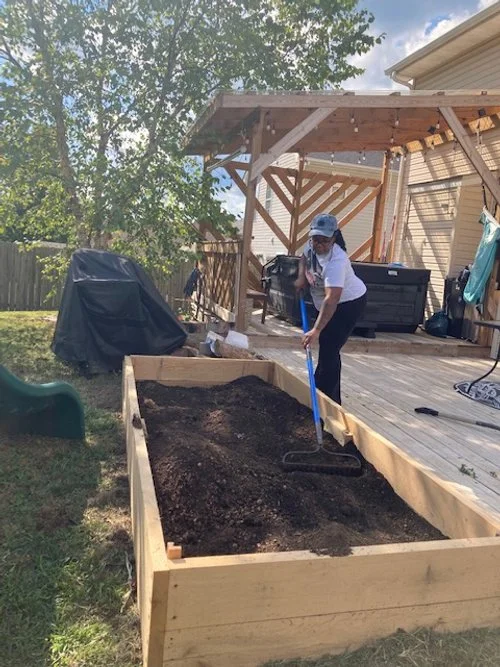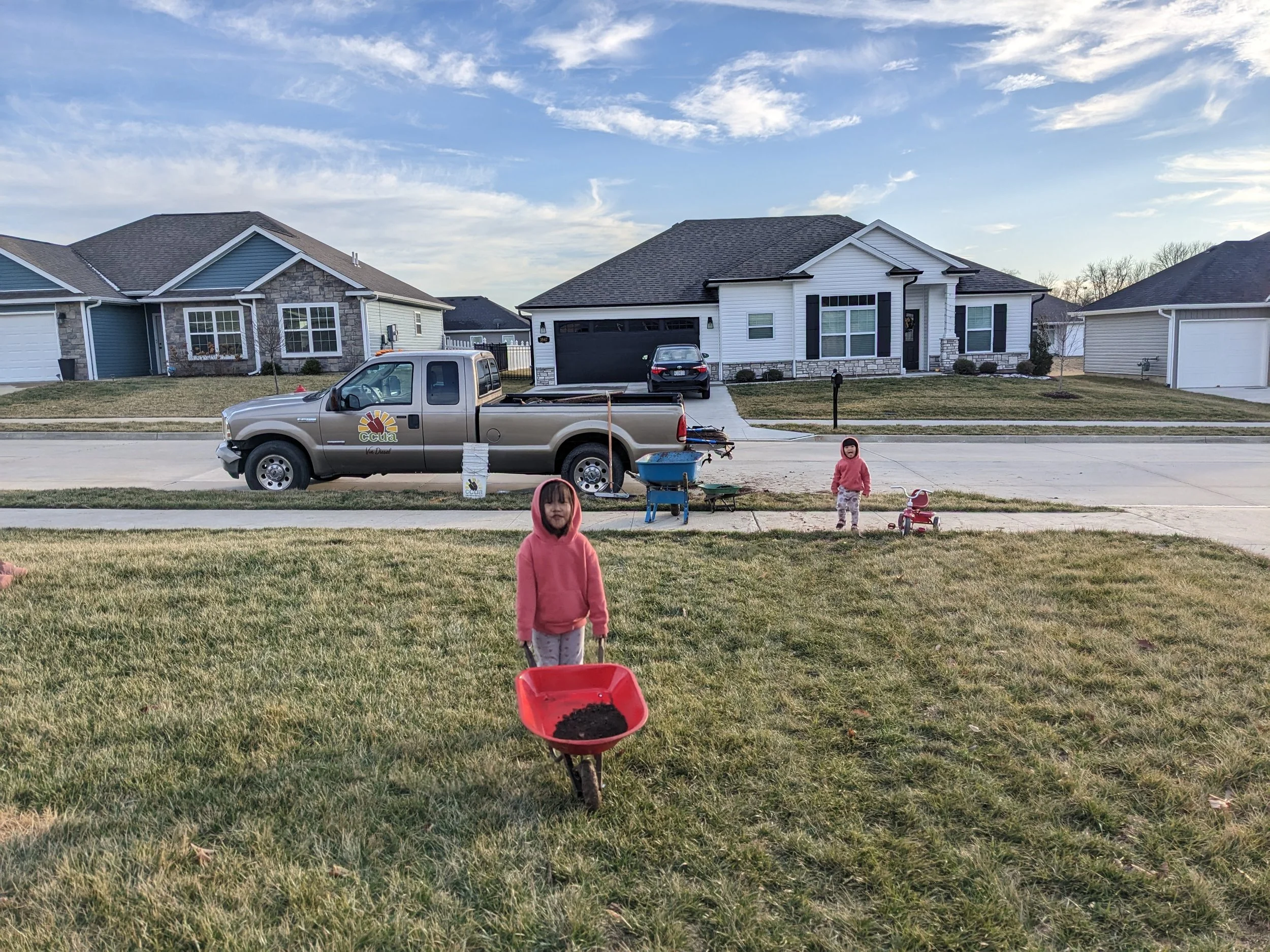The Magic of Home Gardening
“The magic to Opportunity Gardens is the satisfaction that comes from having your own garden–your own relationship with plants and the soil–and the pride, care, and excitement for something you tended its whole life that you then enjoy with your family.”
Opportunity Gardens is a support and mentoring program for home gardeners. If a family wants more fresh vegetables on the dinner table and is interested in growing them, CCUA wants to support that family’s gardening journey. The program is free for those living with low incomes thanks to our funders: United Way, Boone County Children's Service Fund, and the City of Columbia. It provides a home garden, tools, three years of one-on-one mentorship, and plants throughout the seasons.
Some Opportunity Gardeners have never gardened before, while others had strong connections with agriculture as a child or in a different location. Opportunity Gardener Amanda Dawn Mims grew up in a North Carolina farming community. From an early age she's developed a love for gardening and farming. “It’s just honestly in my blood,” Amanda shared with us. Now in Columbia, Amanda feels it is really important to make sure that her children grow up with the same connection to the land. Amanda signed up for Opportunity Gardens to give her children the knowledge and skills to be self-sufficient and sustain themselves.
What are the benefits of backyard gardening?
“[Opportunity Gardens provides my children] knowledge that they can incorporate in their life and pass it down to their grandchildren ... I’m just trying to create a new family cycle.”
How can I start gardening at home?
The program starts with a visit to the gardener's home and a conversation to learn more about the family and their gardening goals. We ask lots of questions. What foods do you like to eat? What are your favorite things to cook? What fruits, veggies, and herbs do you want to cook with? Do you have special physical needs we can incorporate into the design? Together we develop a garden plan that best suits the individual family, and create a garden that is the right shape, size, and height to be manageable throughout the season. For inexperienced gardeners, we usually start small and expand the garden’s size later on as they develop their skills.
CCUA staff schedule mentorship visits throughout the season to provide ongoing support. Many Opportunity Gardeners find their garden rewarding because of the quality time spent with family and being able to share fresh-picked fruits and vegetables with family and friends. We do not use “one size fits all” solutions for a family’s garden plan. If a first-time gardener wants to grow a couple of tomato plants on their patio, we can do that. If a refugee family wants to have their entire backyard tilled to grow amaranth greens, we will search hard to find those seeds and spend time breaking up sod with them in their backyard.
“Being able to just come out and be able to pick what’s in season without having to go to the grocery is such a huge blessing, and the freshness of the fruits and vegetables is a totally different flavor than what you’re going to get from the store.”
As gardeners and gardens flourish, they not only feed families–they feed communities. The gardens offer new opportunities for meaningful livelihoods. Richard Ruhumuriza is a recent Opportunity Gardens graduate. He and his wife, Charlotte, are originally from Burundi and now own a home in southern Columbia with their eight children. Before moving to the United States, Richard had a large garden which was his primary livelihood. Richard and Charlotte joined Opportunity Gardens because they wanted to have more food for their family, and especially the varieties of food they grew in Africa which aren’t widely available here.
From his Opportunity Garden, Richard is able to preserve the food he grows using a deep freezer and provide his family with veggies all winter long. The family grows so much that they sell some of their harvest to other African families who are looking for these regional comfort foods. In early 2021, he was awarded funds from the Henry Kirklin Black Farmer Scholarship to purchase a tiller and expand his growing space toward the goal of one day working full-time at “Richarlotte Farm.”





